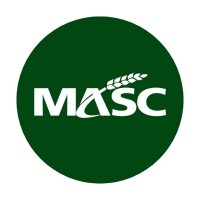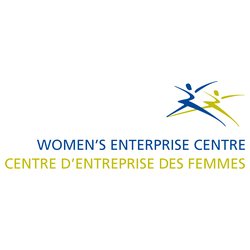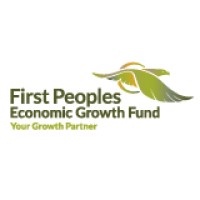
Manitoba — Research and Innovation
At a glance
- Up to 50% of project cost
- Receipt of requests is now closed
- Agriculture, forestry, fishing and hunting
- Manufacturing
- Professional, scientific and technical services
- Canada
- Non-profit
- Public or Parapublic institution
- For-profit business
- Sole proprietorship
- All revenue ranges
- All organization sizes
- Indigenous Peoples
- Rural or Northern Residents
- Canadians
- Higher Education
- Research
- Economic, Social and Community Development
- Business Associations
- Indigenous peoples
- Rural / Remote communities
- Business owners / entrepreneurs
- Nonprofits / charities
- Academia / students
- All structures
- Provincial
Overview
Apply for funding to cover up to 50% of the costs of researcher and industry-led projects for improved technologies and practices related to climate change adaptation, environmental sustainability, human nutrition, and livestock feed production and use.
Activities funded
This grant supports projects that aim to drive innovation and address key challenges in Manitoba's agriculture and agri-food sector. Eligible activities focus on both conducting research and building capacity to advance technological and operational improvements.
- Basic discovery research and applied projects to develop practical solutions for agriculture-related challenges.
- Purchase of research equipment valued at $10,000 or more to enhance capacity in the sector.
- Provision of equipment-specific training to improve research capabilities.
- Development and testing of new agricultural technologies and practices.
- Creation of new products aimed at fostering agricultural innovation.
Eligibility
Eligibility for this grant is determined by specific requirements related to the applicant's profile and their collaboration approach.
- The applicant must be one of the following: Agri-processor, Indigenous Government/individual, business, community or organization, Industry Organization, Primary Producer, Research Institution, or Service Provider.
- Applicants identifying as a researcher or a Government of Canada department or agency must have at least one non-researcher, non-government co-applicant, who must be a primary producer, an agri-processor, an industry organization, or a service provider.
Who is eligible?
This grant is open to various entities involved in the agricultural sector in Manitoba, focusing on advancing research and innovation through collaboration and capacity building.
- Agri-processors
- Indigenous Government/Indigenous individuals, businesses, communities, and organizations
- Industry Organizations
- Primary Producers
- Research Institutions
- Service Providers
- Applicants identifying as researchers from academic institutions or Government of Canada departments/agencies, provided they include a non-research and non-government co-applicant (e.g., primary producer, agri-processor, industry organization, or service provider).
Who is not eligible
The grant is not available to certain types of companies and individuals, including specific government employees and entities. Below is a list of those ineligible for funding:
- Current and former Government of Canada employees
- Government of Canada departments and agencies (except under the Grain Innovation and Crop Production focus area)
- Current Manitoba government employees who are the majority shareholders in a business
- Current or former members of the Legislative Assembly of Manitoba
- Current or former members of the Executive council
- Current or former Manitoba government senior public servants
- Businesses with principal investigators or co-applicants compensated directly from the grant for organizing or delivering project parts
Eligible expenses
The Research and Innovation Program facilitates scientific advancements by providing funding for projects that address specific challenges in agriculture and agri-food sectors. Eligible projects include research and capacity-building activities intended to support innovation and sustainability.
- Basic discovery research aimed at expanding agricultural knowledge.
- Applied research projects developing practical solutions to agricultural problems.
- Acquisition of research equipment valued over $10,000 for capacity building.
- Specific training programs related to new research equipment.
- Development of new technologies and agricultural practices.
- Creation of new agricultural products and improvement of existing ones.
- Efforts to enhance knowledge transfer relating to agricultural innovations.
- Projects focusing on agri-resource management and economic analysis.
- Innovations in grain production and livestock management.
- Initiatives for processing and adding value to agricultural products.
Eligible geographic areas
This grant specifically targets initiatives within Manitoba. Eligible applications must align with Manitoba's strategic agricultural and research objectives.
- Projects and applicants based in Manitoba, Canada.
Selection criteria
The grant evaluation and selection criteria for the Research and Innovation program are designed to assess both Letters of Intent and Application Worksheets based on scientific merit, research approach, communication plans, and more. Here are the specific criteria used to evaluate both stages:
- Scientific merit and originality
- Overall research approach
- Capability of the research team
- Expected results
- Research approach and methodology
- Communication plan and knowledge transfer
- Principles and policy assessment
- Financial and delivery risk
How to apply
Completion of a Letter of Intent
- Obtain the Letter of Intent form by right-clicking the file link and selecting "Save link as" to download it to your desktop.
- Ensure you have the latest version of Adobe to open the document.
- Complete the Letter of Intent document with required information.
Submission of Letter of Intent
- Submit the completed Letter of Intent to the program contact as specified in the form instructions.
- Await feedback to know if your project is eligible to proceed to the next stage.
Invitation to Submit Full Proposal
- If invited, complete the full proposal using the Application Worksheet provided in the follow-up invitation.
- Ensure all necessary information, budgets, and project details are accurately represented.
Submission of Full Proposal
- Submit the full proposal via the method specified in the invitation, ensuring all materials are included.
- Review and adhere to any specific guidelines outlined in the invitation for the full proposal.
Additional information
Here are additional relevant details for this grant:
- Cost sharing varies based on Intellectual Property (IP) requirements or confidentiality needs, affecting the government-applicant funding ratio.
- Multi-year projects must be completed by December 31, 2027.
- Funding intake for this program is currently closed; applicants should monitor for updates on future intake dates.
- Applicants are encouraged to subscribe to the Growing Manitoba Ag newsletter and follow relevant social media for the latest program information.
Contacts
Frequently Asked Questions about the Manitoba — Research and Innovation Program
What is the Manitoba — Research and Innovation?
How much funding can be received?
Who is eligible for the Manitoba — Research and Innovation program?
What expenses are eligible under Manitoba — Research and Innovation?
Who can I contact for more information about the Manitoba — Research and Innovation?
Where is the Manitoba — Research and Innovation available?
Is the Manitoba — Research and Innovation a grant, loan, or tax credit?
More programs like this

Sector Council Program
Government of Manitoba
Food Development Centre
Government of Manitoba
Innovation Growth Program
Government of Manitoba
Manitoba research and development tax credit
Government of Manitoba
Digital Services Program
Government of Manitoba
MASC AgriInsurance
Government of Manitoba
Women's Enterprise Centre of Manitoba — Loans
Women's Enterprise Centre of Manitoba
Manitoba green energy equipment tax credit
Government of Manitoba
First Peoples Economic Growth Fund – Skills Development Program
First Peoples Economic Growth Fund Inc. (FPEGF)